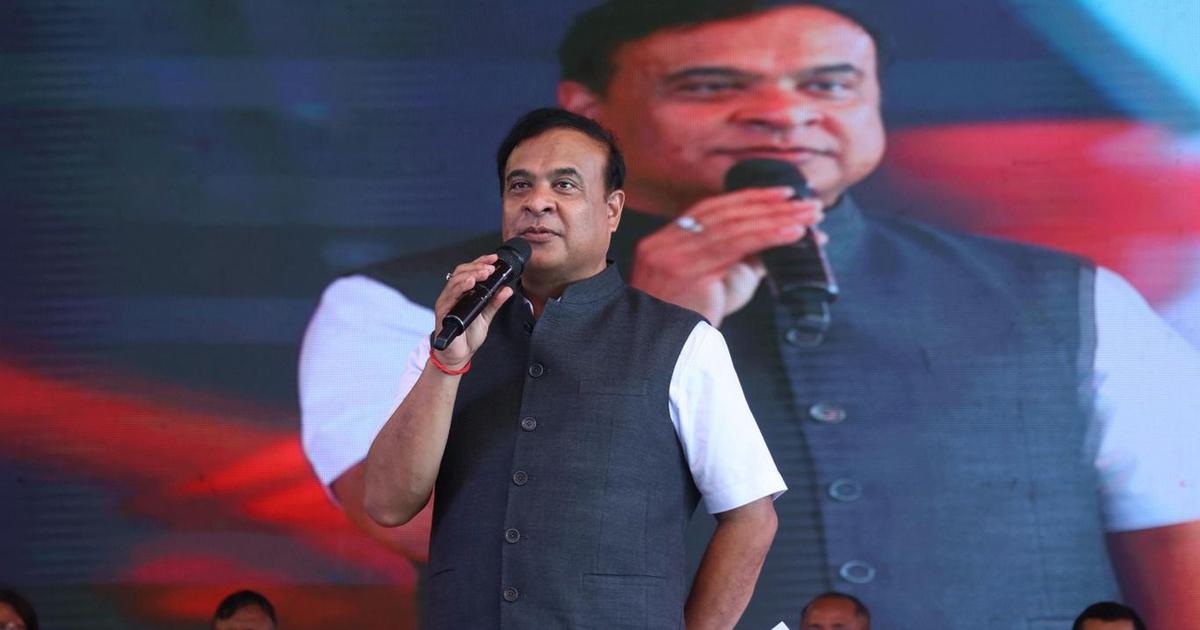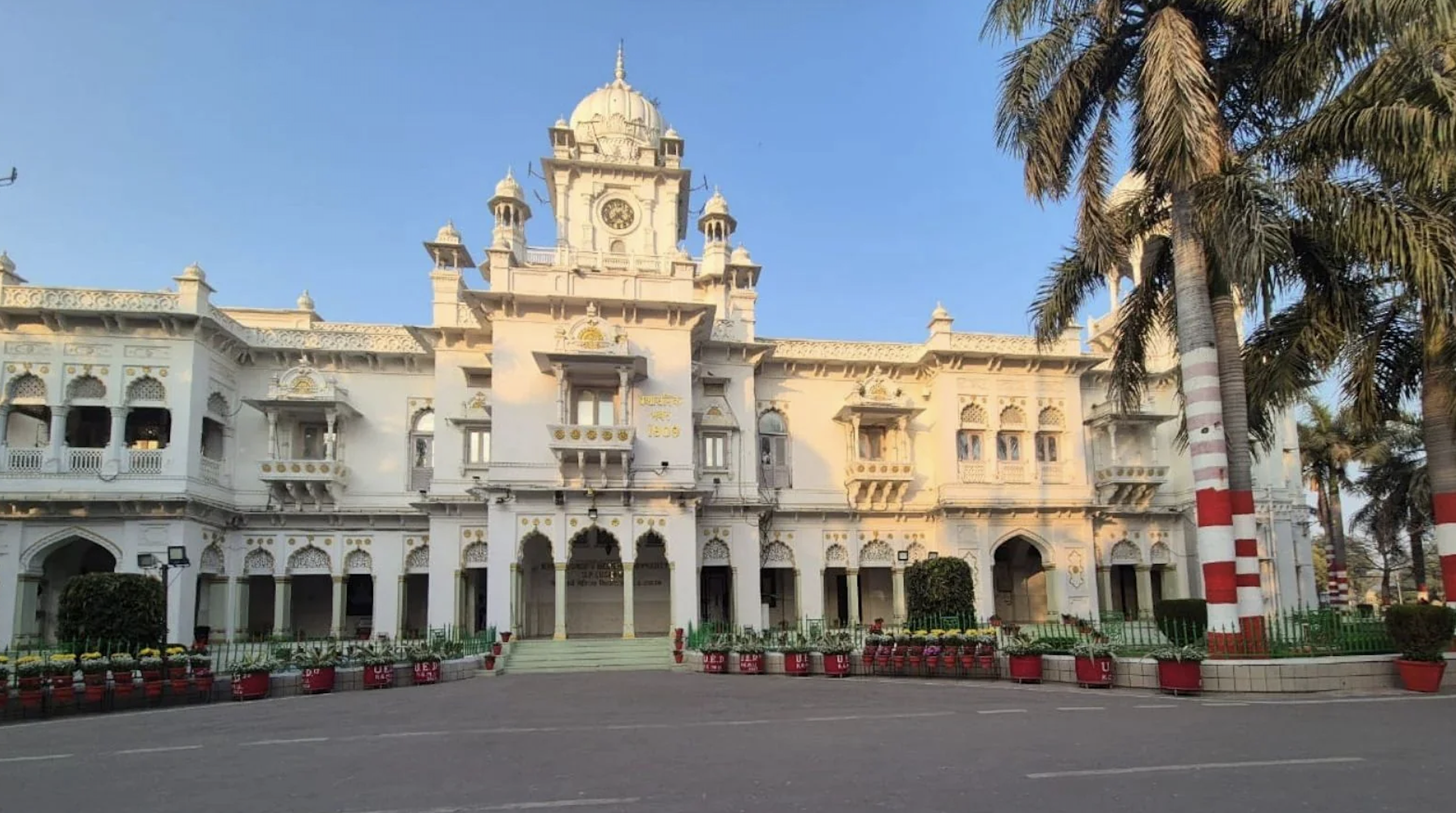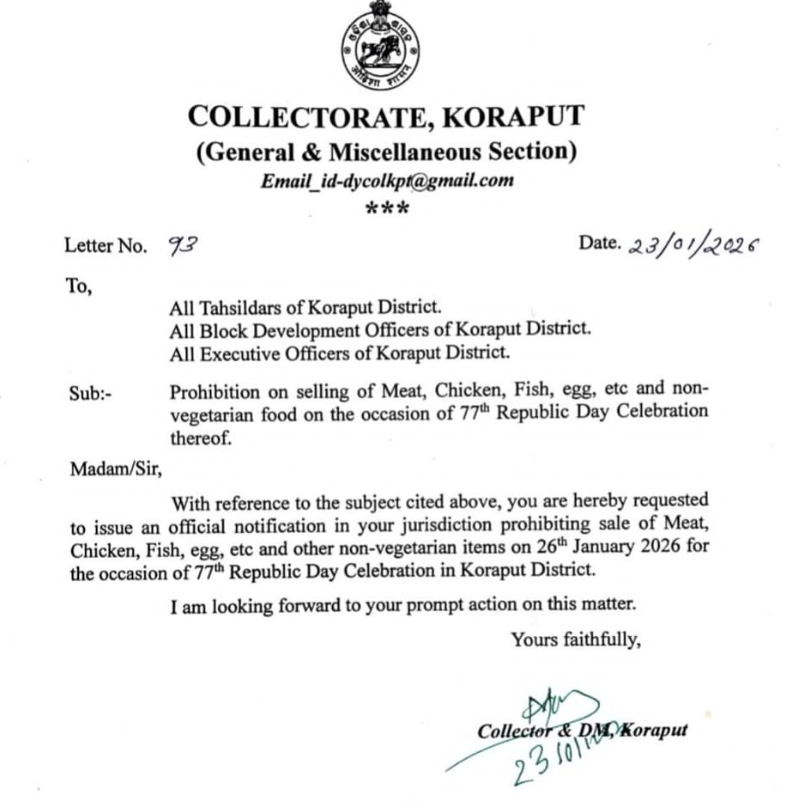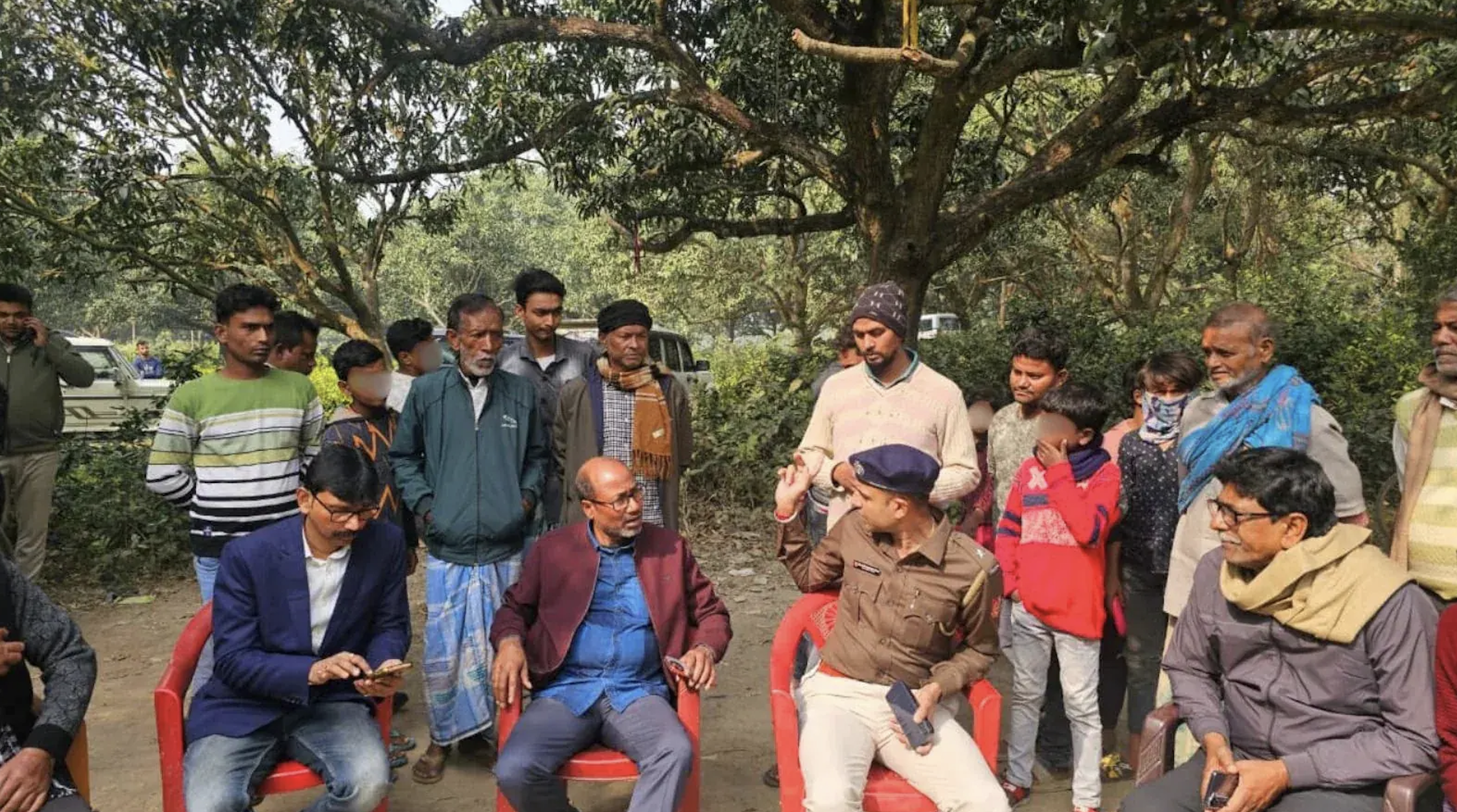
By Jehangir Ali
Srinagar: The turf war between the saffron party and the ruling National Conference (NC) over the Hazratbal shrine in Jammu and Kashmir’s capital Srinagar spilled out into the open on Friday (September 5) after the Waqf board chairperson and senior BJP leader Darakhshan Andrabi demanded the arrest of a Srinagar legislator.
In a hurriedly called press conference, Andrabi also trained her guns at the ruling party, resorting to personal attacks on Jammu and Kashmir chief minister Omar Abdullah and his father Farooq Abdullah after Tanvir Sadiq, the party’s legislator from Srinagar’s Zadibal constituency, took offence to the presence of the national emblem on a plaque in the shrine.
The plaque was inaugurated by Andrabi earlier this week to mark the reopening of the Hazratbal shrine, which was recently renovated by the Jammu and Kashmir Waqf board. The leaders of the ruling party, for whom the shrine has been a traditional centre of power, were conspicuously absent from the event on Wednesday.
The controversy broke out after it came to light on Friday that the granite plaque that bore the name of Andrabi, Waqf board members Syed Mohammad Hussain and Ghulam Nabi Haleem, board tehsildar Ishtiyaq Mohi-ud-Din and engineer Syed Ghulam-e-Murtaza, has been damaged by unknown persons.
A video accessed by The Wire shows a middle-aged, bearded man surrounded by dozens of men repeatedly smashing a brick into the top left corner of the plaque where the national emblem featuring four Asiatic lions had been engraved, creating a rough hole in it amid massive slogans of ‘yehan kya chalega, nizam-e-mustafa’ (‘We want the establishment of Islamic rule’).
A photo showed that the Waqf board logo that has been engraved on the top right of the plaque and the first verse of the Quran, ‘Bismillah-ir-Rahman-ir-Rahim’ in Arabic in the centre, were intact along with the names of those who attended the reopening ceremony on Wednesday after the act of vandalism.
Soon after the photo circulated on social media, Sadiq took to X, saying that “idol worship” was “strictly forbidden” in Islam and is “the gravest of sins”.
This story was originally published in thewire.in. Read the full story here.






